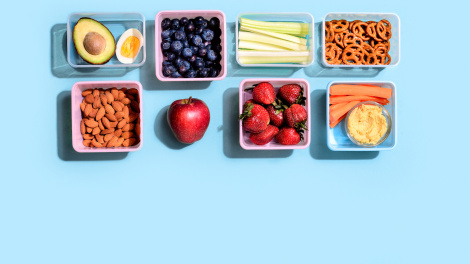Mindless eating is an 'eating behaviour' where food is consumed while we are unaware of the amount being eaten or that we are even eating in the first place.
Click here to read Part 1 of Mindless Eating.
We are always running. This is our norm.
We often feel like we’re being pulled along on our life’s journey, powerless to change. We’re our own worst enemies in constant conflict with ourselves without realizing it. We think we pacify ourselves by eating comfort foods and enticing convenient fast foods, but we are often left feeling guilt and disappointment. We complain of constant fatigue, indigestion, heartburn and bloated sore stomachs and yet… we will fall prey to this habitual lifestyle over and over again.
“Gut feeling” is a real thing and it’s important
It seems that what we can’t see doesn’t consciously concern us. In fact, many of us are not mindful or aware that our intuition and gut instincts (gut feel) –nervousness, wellness, feeling bloated or nausea – are sensations and external physical manifestations of the state of our guts. We have one of the most amazing and intriguing examples of a symbiotic relationship known to mankind and it is happening right under our nose, in our mouths and all the way down our digestive tracts.
Just being mindful of what we are eating has a direct impact on our insides. Our good gut bacteria depend on what we ingest to feed and nurture them so that they can carry out the pivotal role they have in our health and modulation of our immune system. When we eat mindlessly, we endanger a critical part of our ability to fight off illness and hinder our ability to recover.
How do we stop the mindlessness?
Change requires insight. Insight and willingness to change cannot begin until we stop and focus our attention on what is happening in the present moment.
Being mindful simply means being present when you eat, paying attention to your meal and being aware of it. This is perhaps the most valuable trick to avoid being mindless. It includes noting the colours, smells, flavours and textures of your food, chewing slowly, getting rid of distractions like TV or reading, and listening to your body – eat only when hungry, and stop when you’ve had enough. This might all seem a bit of an effort for a simple snack or meal, but the benefits are there. Give it a try before you dismiss mindful eating entirely.
The Basics
It’s up to us to nourish our bodies correctly. While fostering good gut bacteria is not a one-size-fits-all endeavour, some basic principals in healthy eating apply in being mindful.
- Think about what you’re eating, where does it come from?
- read food labels,
- reduce intake of sugars.
- diet should consist mostly of seasonal fruits and veggies
- make healthy individualized protein choices
Here’s a quick run-down of the actions you can take today
Long term solutions to improve mindful eating
More importantly, potentially, than diet is the physiological and psychological approach to breaking the mindlessness mindset. Getting your mind right is 80% of the problem solved.
- Take the steps to reduce your stress and slow down. No matter how healthily we eat, in the presence of stress, digestion is sub-optimal and dysbiosis becomes a problem. You could have the healthiest plate in the world. If you do not learn to slow down, it’s useless.
- You need to exercise and get some proper sleep. This is the essence of mindful eating and a mindful lifestyle in general. Integrated Movement Routines (IMRs) are actually mindful movements in themselves, serving the benefits of psychological mindfulness and the physiological benefits of integrated movement on body.

Learning to eat mindfully is a process
Mindfulness allows you to calm the strong emotions and habits that control and dictate us all– the ones that make us reach for the ice cream when we’re sad, or wolf down dinner when we’re anxious.
Unlearning the eating habits you might have is difficult. Quite frankly, mindfulness takes time. Think back to the foreign language film example. You have to be actively engaged in the text to understand what’s going on. It’s a little tiring but rewarding in the long run. Without the subtitles you can’t really enjoy the depth and beauty of what you’re watching. The same applies to food and mindfulness. It takes a bit of effort at first, but the long term benefit is worth it.
We can control our inner world far better than we can our outer world. We can learn to prevent our mindless eating habits from dominating us. We can stop and swop the destructive journey we may have been oblivious to until now.
The great thing about mindful eating? – it's never too late to start!







Comments